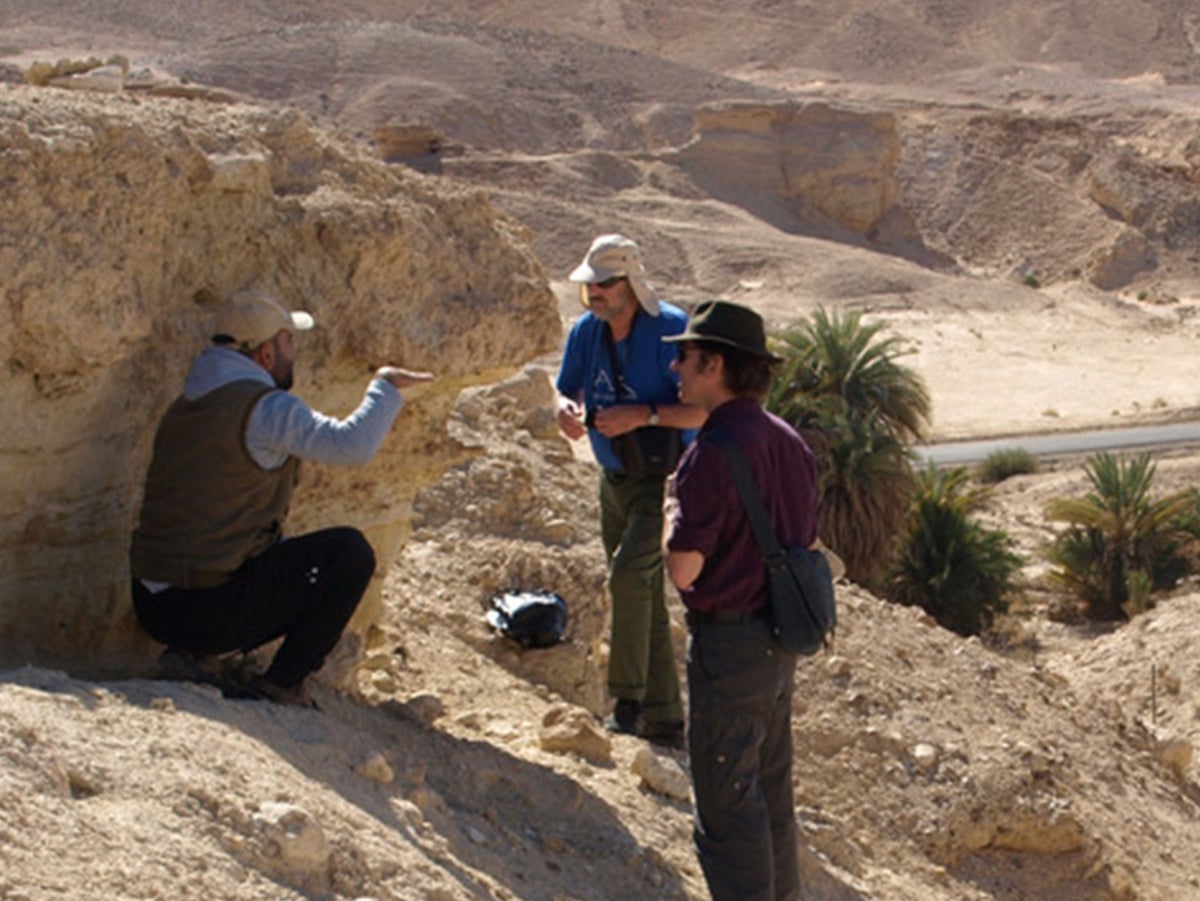
A scientific breakthrough has confirmed how early man left Africa some 84,000 years ago.
A “well-watered corridor” of river channels across the Sinai peninsula and through Jordan was the route early humans took toward Europe and Asia, scientists from the University of Southampton claim to have proved.
Examining hand tools found on the edge of ancient river channels that have dried up over time, the team used specialist dating techniques to discover they were likely to have been used around 84,000 years ago.
The scientists, working with colleagues around the world, say it proves the Homo sapiens navigated their way along the river channels through the Jordan Rift Valley on their way from Africa for Euraisa.
Paul Carling, Professor of Geomorphology at the University of Southampton, said: “It’s long been thought that when the sea level was low, humans used a southern crossing, via the Red Sea from the horn of Africa, to get to south-western Arabia.
“However, our study confirms there was a well-trodden passage to the north, across the only land-route from Africa to Eurasia.
“Our newly published evidence is a key piece of the puzzle that shows humans migrated using a northern route – using small wetland areas as bases whilst hunting abundant wildlife in the drier grasslands.
“Although previous studies have looked for large lakes as potential watering holes, in fact small wetlands were very important as staging posts during the migration.”
Scientists from the Undersity of Southampton say early man took water channels across the Sinai Peninsula and into Jordan— (Getty)
The study, published in the journal Science Advances, was the result of scientists using luminescence dating techniques to help establish the age of the sediment the tools were buried in by estimating how long it had been since the sediment was last exposed to light.
The results showed the tools were likely to have been used in the time period humans left Africa for Eurasia. Modern humans evolved in Africa between 300,000 and 200,000 years ago and dispersed out of the continent in several stages to then populate Asia and then Europe.
A hand tool discovered in the Jordan Rift Valley which helped the scientists date human migration 84,000 years ago— (University of Southampton/PA Wire)
Dr Mahmoud Abbas, the study’s lead author from Shantou University, China, said: “The Levant acted as a well-watered corridor for modern humans to disperse out of Africa during the last interglacial, and we have now demonstrated this is the case in the Jordan Rift Valley zone.
“The paleohydrological evidence from the Jordan desert enhances our understanding of the environmental setting at that time.
“Rather than dry desert, savannah grasslands would have provided the much-needed resources for humans to survive during their journey out of Africa and into south-west Asia and beyond.”







